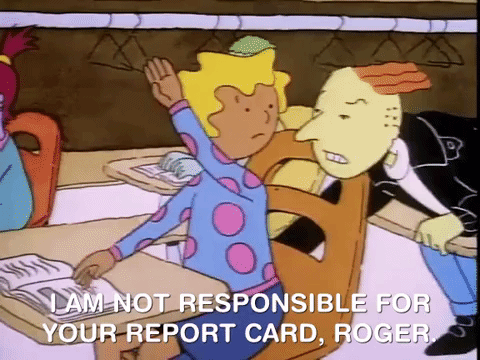Working in a high-stress nonprofit environment can take a toll on even the most optimistic individuals. Maintaining a positive attitude is vital for individual health and organizational success. In this blog post, I’ll explore practical strategies I’ve done or currently do to help you stay upbeat and focused, even when the going gets tough.
Learn to overcome obstacles, build resilience, and create a supportive work environment. With the right tools and mindset, you can thrive in a high-stress nonprofit environment and make a lasting impact without losing your freaking mind or soul.
First, let’s talk about the common consequences of stress in nonprofit from our perspective.
Disclaimer: I only recommend products I would use myself and all opinions expressed here are my own. This post may contain affiliate links that, at no additional cost to you, I may earn a small commission
Consequences of Stress in a High-Stress Nonprofit Environment
Working in a nonprofit sector can be incredibly rewarding, but it can also be very stressful. I cannot overstate the impact of stress on our mental health. Long-term stress can lead to anxiety, depression, and other mental health problems. I am, and always have been, a major advocate of therapy, and especially for admins. Especially because jobs with high-stress can lead to job burnout and compassion fatigue.
High stress levels can lead to burnout and fatigue, resulting in exhaustion, cynicism, and detachment. Compassion fatigue can occur when employees become overwhelmed by the emotional demands of their work. This can lead to feelings of emotional exhaustion and a decreased ability to empathize with others.
If any of you have experienced burnout or compassion fatigue, it’s a hell of a place to live in. I remember days when it felt like just getting to work was the biggest task of the day.
I’m not pulling punches y’all, so I’m going to call out the major causes of high-stress nonprofit environment as an admin! Let’s get real for a moment!
Major Causes of High-Stress in Nonprofit Sector
- High workloads and intense pressure to meet the demands of the organization (combined with low pay).
- Little or no support to help your complete goals (combined with low pay).
- Working long hours and weekends with little time off (combined with low pay).
- Dealing with limited resources and funding (combined with low pay).
- Maintaining relationships with donors, volunteers, and board members (combined with low pay).
- Navigating relations with colleagues and managers (combined with low pay).
- Assumption of inferiority and/or unintelligence because you’re in an administrative role (combined with low pay).
- Constantly changing regulations and policies (combined with low pay).
- Fucking egos(combined with low pay)!
- No/Little organizational structure (combined with low pay).
- …oh, and did I mention, LOW PAY???
Are there more than these, yes, but I will say it’s a damn good start. If I left anything off this list, please add it to the comments! You never know when it can help another person!
My Strategies to Maintain a Positive Attitude
This will not be a happy puppy and rainbows type of pep talk. This is going to be a real pep talk. Many of my strategies might sound bitter and angry, but it’s honestly not coming from an angry place, just an authentic place.
In my mind, I’m talking to you as if you’re my office bestie, so please try to keep an open mind. I’m happy you’re here and I care about you.
Identify What is Within Your Control
In a high-stress nonprofit environment, it’s easy to feel overwhelmed and powerless. Be aware that some things are within your control, and others are not. By identifying these things, you can take charge of what affects you.

As admins, we take in so much of our bosses’ and colleagues’ feelings and concerns that we empathize/sympathize with them too much. We are there to help them succeed. It’s true. And we do our best. However, its success is not solely your fault.
It might feel cold to make that determination, but it’s true. Each person has their own responsibilities and duties they must fulfill, and it’s not your job to carry the weight of the world on your shoulders alone. As long as you gave it your all within the limits of what you could control, there is no more that anyone could ask of you. Remember to give yourself credit for doing your best!
Let Go of What You Can’t Control
Conversely, it’s important to recognize when things that are outside of your control and let them go. Dwelling on the unchangeable will only add to your stress and reduce your positivity. Instead, focus on the things that you can control and let go of the rest.
Remind yourself that you have the power to control your attitude, even in the most challenging nonprofit environments.

By focusing on what you can do, rather than what you can’t, you’ll be able to take proactive steps towards maintaining a positive outlook. Establishing goals, taking care of yourself, and connecting with supporters can help create balance.
Remember, attitudes are contagious and can have a significant impact on those around you and vice versa. By maintaining a positive mindset, you’ll not only improve your own well-being, but also contribute to creating a more productive and supportive work environment for everyone involved.
If you want to learn more about this concept and how to change your perspectives on obstacles your encounter, I strongly recommend The Obstacle is the Way.
Practice Positive Self-Talk
Another way to maintain a positive attitude is by practicing positive self-talk. If you’re anything like me, when I make a mistake, my inner voice says the most terrible things to me. Because no one can hear the negative comments, it often goes unchecked and becomes what I believe.
But here’s the thing – everyone makes mistakes! I know that most of us (including myself) are perfectionists. So, I understand how hard this is going to be. However, I really hope you give this a try.

My favorite trick for positive self-talk is to imagine how my best friend(s) or someone you trusted would respond to you in this situation. I love that my friends can be brutally honest and acknowledge my mistakes, but I know they would gladly kick my ass if I started saying terrible things about myself.
So the next time you make a mistake or you doubt yourself, ask yourself, “Would my bestie let anyone say those things about me in their presence?”
Instead, focus on your accomplishments and the progress you are making.
You: “But my mistake was really bad, and my manager even was upset/said something!”
My response: Think of how much work you did to make this project/task/report/event happen! How much time, effort, and diligent care did you put into it? Did you do your best? How many things went as they should? Make a list of them. I’ll get you started. Was the/Did:
- Room reserved?
- Food delivered on time?
- Report organized?
- Budget prepared?
- Communication consistent?
- Technology checked/prepared?
- Document delivered on time?
- Guests arrive/feel welcome?
- You get a lot of support or help?
If your manager or colleagues overlook the positives, their opinions are simply not worth your consideration. No, that’s not a mean or bitter sentiment, it’s just fact. They don’t understand the full picture of your work and only see 5%. That means their opinion disregards 95% of the great work you did, like you never did it, and it’s simply not true.
For more tips on positive self-talk, check out this Healthline article.
Show Gratitude and Build Relationships
It’s easy to lose sight of the positive things with long hours, tight deadlines, and the pressure of achieving goals. However, practicing gratitude and positivity can help you maintain a positive attitude, even in the most stressful of situations.
That’s why it’s important to build positive relationships with your colleagues. NO, not with all of your colleagues because, let’s be real, some people just suck.

But doing your best to make your work environment more enjoyable can also improve your productivity and job satisfaction. Okay, I don’t mean you have to be friends and share your personal life with them, but always being professional and cordial goes a long way.
One of my favorite things to do is to show gratitude to colleagues for their hard work and contributions. A simple “thank you” or a note of appreciation can go a long way in building positive relationships. I’m a fan of taking them out for a coffee, or getting them a snack or baked good out of the blue.
Remotely, you can send a “thank you” email or a gift card for a coffee or something you feel they might enjoy. It’s important to acknowledge their efforts and let them know you value their contributions.
Finally, surrounding yourself with positive people can greatly impact your attitude. Seek colleagues who have a positive attitude and healthy boundaries and try to spend more time with them. Surrounding yourself with positivity can help you feel more motivated and encouraged to maintain a positive attitude.
For more information on showing gratitude, check out this Psychology Today article 7 Scientifically Proven Benefits of Gratitude.
Conclusion
All in all, maintaining a positive attitude in a high-stress nonprofit environment is a daily practice that requires commitment and effort. Remember to identify what is within your control and take action on those things. Let go of what you can’t control and practice positive self-talk to reframe your thoughts and emotions.
Additionally, cultivate gratitude and build relationships with your colleagues and partners to create a positive and supportive work environment. By implementing these strategies, you can stay positive, motivated, and productive, even in the most challenging circumstances. So go forth and stay positive, my friend – you’ve got this!
Featured Photo by Elisa Ventur on Unsplash


